- Home
- Roger Taylor
Valderen ft-2
Valderen ft-2 Read online
Valderen
( Farnor tale - 2 )
Roger Taylor
Roger Taylor
Valderen
Chapter 1
The castle gates swung open.
Nilsson turned to watch the swaying silhouette that was moving slowly through the shade of the archway. He had been assiduously resurrecting the old, long-forgotten habits that had, in the past, ensured both his survival and his advancement, though it took him some effort to keep his demeanour neutral as Rannick, astride his foul-tempered mount, emerged into the light. For while Rannick might not yet be the man that Nilsson’s erstwhile master had been, his power was increasing almost daily and, as it grew, so his humanity inevitably diminished. Nilsson knew only too well that now he had chosen to stand by his new Lord his life depended solely on the value that Rannick placed on him, and that this value depended in turn not only on his willingness to serve but on his ability to read and anticipate Rannick’s moods accurately.
And it was especially important now, for he was certain that something had gone amiss during the fiery demonstration that Rannick had given the previous day. True, the roaring column of fire that had appeared out of nothingness had been both awe-inspiring and terrifying, and it had sent Gryss and the others away suitably cowed and humiliated. Yet, increasingly sensitive to his master’s behaviour, Nilsson was sure that he had felt Rannick falter. Only slightly, admittedly, but the memory of it had lingered with him since. It was as if Rannick had been assailed in some way. And he had sensed, too, a grim, almost desperate, anger begin to mount in the man; an anger that had seemed to be building towards some appalling conclusion until it had suddenly evaporated into a surprised vagueness at the unexpected collapse of Gryss and the others on to their knees.
Rannick had stood for a long time apparently star-ing after the retreating figures as they stumbled away from the castle, supporting the beaten Farnor. But Nilsson, fearfully willing himself to absolute stillness lest he inadvertently attract Rannick’s attention, saw that his eyes were abstracted and distant.
Then, as if in confirmation of Nilsson’s conclusion, Rannick had silently beckoned for his horse and, without comment, ridden north.
Later, Nilsson had started violently from a troubled sleep to hear, he thought, the distant shrieking howl of Rannick’s creature. Though whether it had been reality or a lingering remnant of some nightmare, he could not have said.
And now Rannick had returned.
Nilsson took a slow, silent, very deep breath as Ran-nick came to a halt in front of him. ‘Lord,’ he said, bowing slightly.
‘We begin today,’ Rannick replied tersely as he dis-mounted.
‘Lord?’
But Rannick was walking away from him. Hastily Nilsson turned and strode after him across the court-yard. What had he missed? As they reached a doorway, Rannick turned and looked squarely at him. ‘We begin our conquest of this land, Captain,’ he said. ‘I am fully ready now. All opposition has been ended.’
Opposition? There was more in Rannick’s tone than a reference to the mere quelling of Gryss and the others. So something had happened yesterday. Yet too, there was a strange exhilaration about Rannick that Nilsson had not known before. Something else must have happened during the night: something profound. He asked no questions, however. Time, and silent, watchful awareness, would eventually give him such answers as he needed. Petty curiosity now might well kill him. ‘As you command, Lord,’ he replied, as Rannick turned and disappeared into the building.
Thus Rannick’s early cautious steps along what he knew as the golden road of his destiny became a purposeful and determined march. Having finally had his own way in the matter of the treatment of the villagers, Rannick seemed content now to leave the day-to-day pursuit of his schemes in Nilsson’s hands and, beyond a general overseeing of matters, he interfered scarcely at all with detailed plans. Nilsson however, took few chances, and submitted almost his every intention and the reasons for it to Rannick for his approval. Increasingly he was finding Rannick difficult to anticipate.
Rannick, though, was learning. Learning more and more about the nature of the men that he now com-manded, not least about their peculiar, savage expertise and how it could best be used to further his ends. Yet he knew that to speak openly on such matters would be merely to display his ignorance and, in so doing, diminish his authority.
Fascinating though this learning was however, it was secondary to his avid study of his growing power and the mastering of the subtleties of its use. For hour upon hour he secluded himself in a room at the top of the castle’s highest tower, a room which overlooked the woods and peaks to the north as well as the sweep of the valley southwards. No one knew what arts he practised there but, although nothing had been said, it was acknowledged that the room was forbidden to all others, on pain of immediate death. And the light that flickered fitfully from its windows at night was like a baleful eye, surveying not only the castle yards but the entire valley. More than a few of Nilsson’s men complained that they could feel it watching them even when they were indoors. ‘Well, be careful what you say and do, then,’ he offered them, by way of reassurance. ‘And what you think.’
And too, unannounced, Rannick would take his evil-tempered horse and ride off to the north. Sometimes he would return the same day. Sometimes he would be gone for several days. These mysterious absences unsettled Nilsson badly, particularly the longer ones. They brought to his mind the spectre of his new Lord not returning, either through some unforeseen hazard or, worse, through choice. But he could say nothing. As he had many years before, he could only have faith in the path that he had chosen, accepting the arbitrary behaviour of his Lord and continuing with the task that had been placed in his hands: the conquest of the land.
Only a few weeks ago such a notion would have seemed absurd to him. Indeed, but weeks ago, it would have been absurd. Then, he and his men had been a haunted and broken force. But, no longer. Now they had been renewed. Now their every ambition could be fulfilled, with time, patience and careful planning. Despite the dark uncertainty of Rannick’s leadership, the prospect exhilarated Nilsson, though he allowed no outward sign of this to show.
Such knowledge as he had gained while journeying through the land beyond the valley had told him that it was large, sparsely populated and possessed of no great military might. That his own troop was small for such a grandiose scheme as conquest was of little consequence. With the correct tactics, any society could be brought low by a small, determined group. Had not he and his men been part of such a group once before? And held in thrall a far more vigorous people than inhabited this land. And too, he knew that his group would grow. There were always malcontents who could find no place in any ordered society, however benign. People within whose darker natures lay deep, stagnant pools of anger and hatred that needed only the right impetus to stir them into corrosive, consuming whirlpools of desire and resolve. Such people would emerge from the shadows and flock to the new banner that would be raised, like flies to a carcass.
However, tactics, recruits, and motivation notwith-standing, Nilsson knew all too well that Rannick’s power was essential to the success of the venture. Only with this could they be assured of a victory sufficiently complete to ensure that they would retain their grip on the land. And Rannick’s power would be with them only insofar as these early ventures were successful.
Thus, as Nilsson began to play his part in Rannick’s great scheme, the villagers grew increasingly used to the sight of groups of armed men passing down the valley, to return days later, triumphant and noisy, with pack animals and wagons loaded with produce, furniture, and many other items of plunder, and, not infrequently, pale and fearful captives. They grew used also to the small but steady stream of ill-fa
voured individuals let through by the guards who sealed the valley to the south; individuals who sought directions to the castle with conspiratorial leers, taking it for granted that the villagers were party to the ravaging activities of Nilsson’s men.
Given almost a free rein by Rannick, Nilsson imple-mented his original intention with regard to the villagers, namely that they be left alone while they caused no trouble. He did it quietly, off-handedly almost, so as to avoid attracting Rannick’s attention, but he was explicit with his men. ‘Leave them alone. Just let them know it’s in their interests to stay quiet and co-operative. We’ll need them to grow most of our food eventually. If any of you make trouble here, you’ll answer to me personally.’ He was not unreasonable, however; he knew his men’s needs. He smiled know-ingly. ‘Besides, we’ll get plenty of everything else we need from the other villages we… visit.’
Without openly declaring it, he affected that this was now Rannick’s will, and while his men knew that this was not so, they also knew enough not to dispute the point. At least, not while they could indeed get everything they wanted elsewhere.
The villagers themselves watched the unfolding events both fearfully and sullenly. The fate of Katrin and Garren Yarrance had made a stark and chilling impres-sion on them, as had the account from Gryss, Harlen and Yakob of the strange power that Rannick now possessed. And fretting round the edges of these horrors was the mysterious disappearance of Farnor. Where had he gone that night after he had left Gryss’s cottage? Had he gone to the castle and been quietly slain? Or had he fled over the hill to seek help from the capital? Or, the wilder notions went, had he fled north to the Great Forest? Some said that food and supplies had been taken from the Yarrance farm, and others were convinced that they had heard something howling beyond the castle on that fateful night. Speculation however, added only confusion to the dark ignorance that was slowly swamping the village.
Yet, inevitably, there was a certain amount of busi-nesslike, if surly, contact between Nilsson’s men and the villagers. Food was required. Repairs had to be made to parts of the castle. Horses had to be tended. Servants were needed. Occasionally there were overt threats made to reluctant workers, but the worst threat was the unspoken one which cried out every time a marauding band returned with booty and captives. ‘Women for pleasure. Men and children as hostages. Think your-selves lucky this isn’t happening to you.’
It was a matter discussed only in subdued whispers and with the closest of friends, for already there were those who were turning away from Gryss and the Council and the traditional, if informal, hierarchy that had overseen village life for generations. They were turning instead towards the power that could enforce its will with muscle and steel.
* * * *
Gryss sat alone in his cottage, resting his head on his hand. His face was drawn and his eyes were red. He had been weeping. He had not wanted to, even though the wiser part of him knew that he needed to, but the enormity of what was happening, and his part in it, had eventually swept aside his unhappy resistance and, for a while, he had sobbed like a beaten child into the silence of his old cottage.
Despite himself, he was tormented by the knowledge that he should have challenged Nilsson and his men when they first arrived, down-at-heel and exhausted. He was certain now that they could have been turned away while they were weak and had no measure of the village’s vulnerability. Perhaps there would still have been some problem with Rannick and the strange creature with which he had made his unholy alliance, but that too might have been dealt with had Nilsson and his men not been there. And now, though he knew all too well that he should stand against Nilsson and Rannick, and tell the villagers to do the same; knew that he should use what remained of his authority to unite them into a powerful opposition; because of his earlier weakness and indecision, he could not.
Now he could only say, feebly, ‘No, we mustn’t do this, we mustn’t do that, look what might happen to us.’ And, again, by way of demonstrating the taunting rightness of this advice, came the steady stream of other poor souls, less privileged in their proximity to the seat of the power that was spreading like nightfall across the land.
How did I come to this? he thought bitterly, wiping his eyes awkwardly on his sleeve.
Step by wretched step, came the equally bitter reply from somewhere within himself. And, in truth, he could not see how it could have been otherwise when he looked back over what had happened. But this gave him no consolation, and his mind was constantly filled with the words ‘if only’ swirling round and round like autumn leaves caught in the coming winter wind. If only Farnor had not planted the idea of tithe gatherers in his head when Nilsson’s men had first appeared in the distance. And yet again, if only he had stepped out and spoken to them as their ragged column had moved past the waiting villagers…
Gradually however, his mood became grimmer, until, angrily, he dashed the endless, tangled chain of tiny linked events aside and forced himself to look to the future. It was filled with the frightened faces of more and more captives, torn from their peaceful lives and brought in thrall to Rannick’s terrible castle through no fault of their own; playthings and pawns in whatever dire game he was playing. Yet, while to Gryss these people were strangers, their very ordinariness marked them as his friends and neighbours. After a while, as he sat there, head bowed, he began to realize that the burden of their silent reproach would eventually become more than he could bear; would become more awful to him than any consequence that might ensue from his facing and denouncing Rannick and Nilsson.
He stood up and went into the kitchen. Wiping his face with a damp cloth, he gazed at his reflection in a mirror on the wall. Like the ring that hung at his threshold, this too was a relic of his youthful travelling days, though he could not now remember exactly how he had come by it. Unlike the ornately carved ring, however, the mirror was of a very simple design. Its plain frame was black, though he could not imagine what paint or stain had been used to make it thus, as it had neither sheen nor texture. Indeed, when examined closely it seemed to have the quality of the blackness of a starless night, an infinite, aching depth. It disturbed him when he chose to think about it. And the glass was as bright and vivid as the frame was dark, almost as if the one had drawn all the light and radiance from the other. Further, throughout the years its brilliant clarity had shown no signs of ageing or tarnishing – unlike himself, he mused. It gave, as it had always given, a cruelly accurate reflection of what it saw.
Gryss stared at the old man who was gazing patheti-cally out at him. Then the watching face became scornful. With an effort, Gryss straightened up. His inner battle was not yet finished; fear and self-doubt could never truly be vanquished, but somewhere within him a tide was turning. Still there was a great chorus shouting for safety and security, for acquiescence to what was happening so that he could spend the remainder of his life in peace. But, increasingly, its voice was becoming strident and hollow and, though unwelcome, colder but wiser counsels were beginning to prevail. Safety he might possibly attain, though he had doubts about even that, knowing Rannick’s disposition, but he could never truly know peace if others suffered when some effort on his part might help them.
The terrible, slaughtered images of Garren and Katrin Yarrance hovered perpetually at the edges of his mind, and, all too frequently, his stomach churned with his impotent distress at not knowing the fate of Farnor. But while he could not mend his earlier mistakes, perhaps he had learned enough to avoid making any more.
Yet what could he do? The inexorable question. Direct opposition to Rannick would mean death, or worse. And what retribution would such opposition unleash on the village?
The expression of the old man in the black-edged mirror became baleful. For an instant it seemed to Gryss that he was the shallow, ephemeral image and that the face in the mirror was the real person. He turned away sharply, his breathing suddenly painful, so powerful and frightening was this impression, and so severe the judgement in the eyes that had looke
d into his.
The shock cleared his mind. What he could do, first of all, was use his head; he could think.
Somewhere there was a solution. The energy that was draining out of him in whining self-pity must be redirected towards finding that solution, however elusive and difficult it might prove to be. And he did not have the luxury of time at his disposal. With each day, he reasoned, Nilsson’s men would travel further and further abroad on their plundering raids; and too, in addition to those strangers who were wandering into the valley, like lesser predators following the scent of another’s kill, not all those who returned with the raiders were captives; some were, beyond a doubt, recruits. Rannick’s power would draw the worst out of men, and the worst of men. Gryss needed no military training to know that the armed strength of the garrison was growing relentlessly.
But what was Rannick up to? What could be the purpose of such a force? He obviously did not need it just to hold sway over the village. Gryss dismissed the questions before they began to lead him astray. They were irrelevant, at the moment. Whatever Rannick’s intentions were, all that mattered now was that they be frustrated.
He returned to his favourite chair. It creaked wel-comingly as he sat down and settled himself comfortably.
A dark measure of his position came to him first. He could do little or nothing alone. Further, whatever opposition he decided upon, he would have to persuade an increasingly large number of the villagers to accept and follow it as time passed. But who was to be trusted? There was no reason to suppose that the doubts and fears which were assailing him were not assailing everyone else, and, in all conscience he could not reproach anyone for throwing in their lot with the new masters of the valley. Yet this was only an intellectual conclusion; despite the truth of it, deep within himself he felt his benevolence fighting a stern battle with a powerful, emotional, reaction of anger and revulsion at such behaviour.

 The call of the sword tcoh-1
The call of the sword tcoh-1 Farnor
Farnor Into Narsindal
Into Narsindal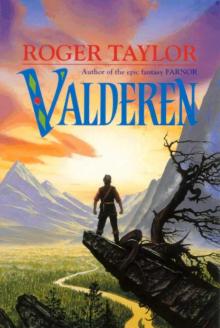 Valderen ft-2
Valderen ft-2 Arash-Felloren
Arash-Felloren The Return of the Sword tcoh-5
The Return of the Sword tcoh-5![Ibryen [A sequel to the Chronicles of Hawklan] Read online](http://i1.bookreadfree.com/i1/03/26/ibryen_a_sequel_to_the_chronicles_of_hawklan_preview.jpg) Ibryen [A sequel to the Chronicles of Hawklan]
Ibryen [A sequel to the Chronicles of Hawklan]![The Call of the Sword [Book One of The Chronicles of Hawklan] Read online](http://i1.bookreadfree.com/i/03/24/the_call_of_the_sword_book_one_of_the_chronicles_of_hawklan_preview.jpg) The Call of the Sword [Book One of The Chronicles of Hawklan]
The Call of the Sword [Book One of The Chronicles of Hawklan]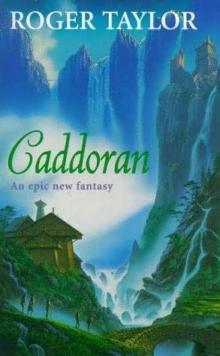 Caddoran
Caddoran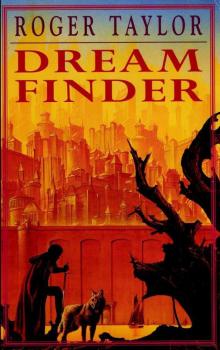 Dream Finder
Dream Finder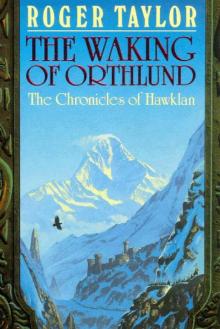 The Waking of Orthlund
The Waking of Orthlund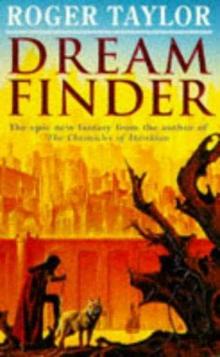 Dream Finder cohs-1
Dream Finder cohs-1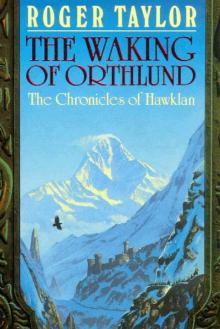 The waking of Orthlund tcoh-3
The waking of Orthlund tcoh-3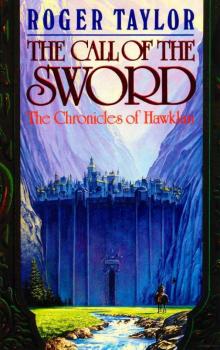 The Call of the Sword
The Call of the Sword The fall of Fyorlund tcoh-2
The fall of Fyorlund tcoh-2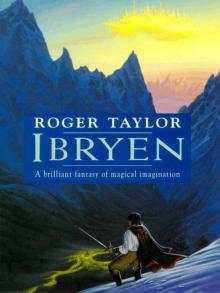 Ibryen
Ibryen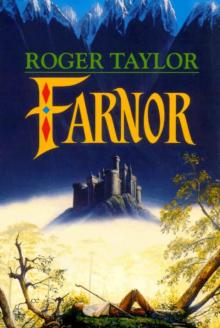 Farnor ft-1
Farnor ft-1 The Return of the Sword
The Return of the Sword![Into Narsindal [Book Four of The Chronicles of Hawklan] Read online](http://i1.bookreadfree.com/i2/04/06/into_narsindal_book_four_of_the_chronicles_of_hawklan_preview.jpg) Into Narsindal [Book Four of The Chronicles of Hawklan]
Into Narsindal [Book Four of The Chronicles of Hawklan]![Valderen [The Second Part of Farnor's Tale] Read online](http://i1.bookreadfree.com/i2/04/05/valderen_the_second_part_of_farnors_tale_preview.jpg) Valderen [The Second Part of Farnor's Tale]
Valderen [The Second Part of Farnor's Tale]![The Fall of Fyorlund [Book Two of The Chronicles of Hawklan] Read online](http://i1.bookreadfree.com/i2/04/08/the_fall_of_fyorlund_book_two_of_the_chronicles_of_hawklan_preview.jpg) The Fall of Fyorlund [Book Two of The Chronicles of Hawklan]
The Fall of Fyorlund [Book Two of The Chronicles of Hawklan] Into Narsindal tcoh-4
Into Narsindal tcoh-4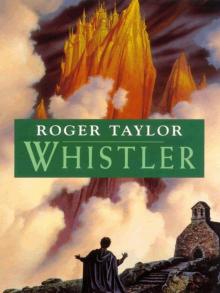 Whistler
Whistler![Whistler [A sequel to The Chronicles of Hawklan] Read online](http://i1.bookreadfree.com/i2/04/12/whistler_a_sequel_to_the_chronicles_of_hawklan_preview.jpg) Whistler [A sequel to The Chronicles of Hawklan]
Whistler [A sequel to The Chronicles of Hawklan] The Fall of Fyorlund
The Fall of Fyorlund![The Waking of Orthlund [Book Three of The Chronicles of Hawklan] Read online](http://i1.bookreadfree.com/i2/04/11/the_waking_of_orthlund_book_three_of_the_chronicles_of_hawklan_preview.jpg) The Waking of Orthlund [Book Three of The Chronicles of Hawklan]
The Waking of Orthlund [Book Three of The Chronicles of Hawklan]